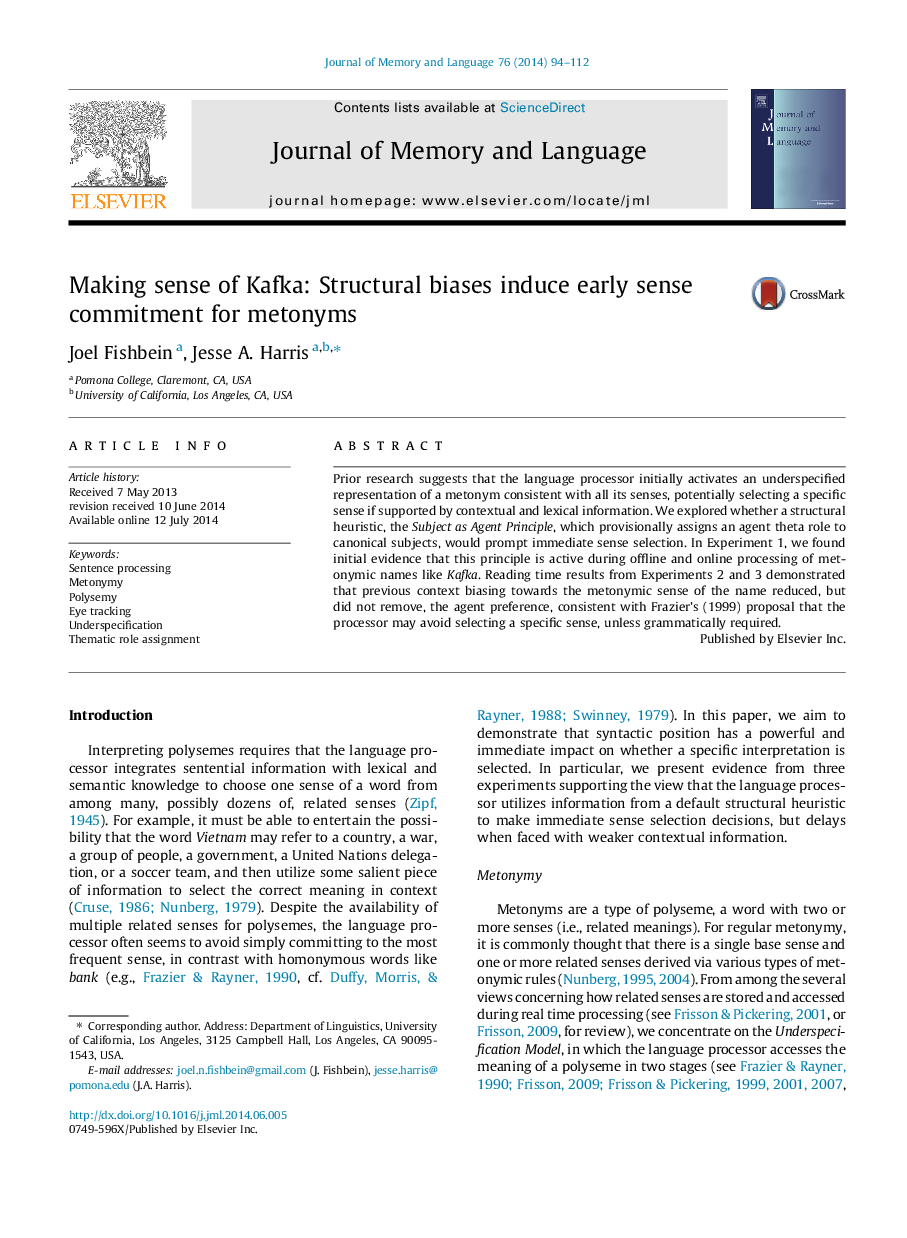ترجمه فارسی عنوان مقاله
انگیختگی ادراکی ایجاد حافظه های جدید اپیزودیک را بهبود می بخشد
عنوان انگلیسی
Making sense of Kafka: Structural biases induce early sense commitment for metonyms
| کد مقاله | سال انتشار | تعداد صفحات مقاله انگلیسی |
|---|---|---|
| 36637 | 2014 | 19 صفحه PDF |
منبع

Publisher : Elsevier - Science Direct (الزویر - ساینس دایرکت)
Journal : Journal of Memory and Language, Volume 76, October 2014, Pages 94–112

